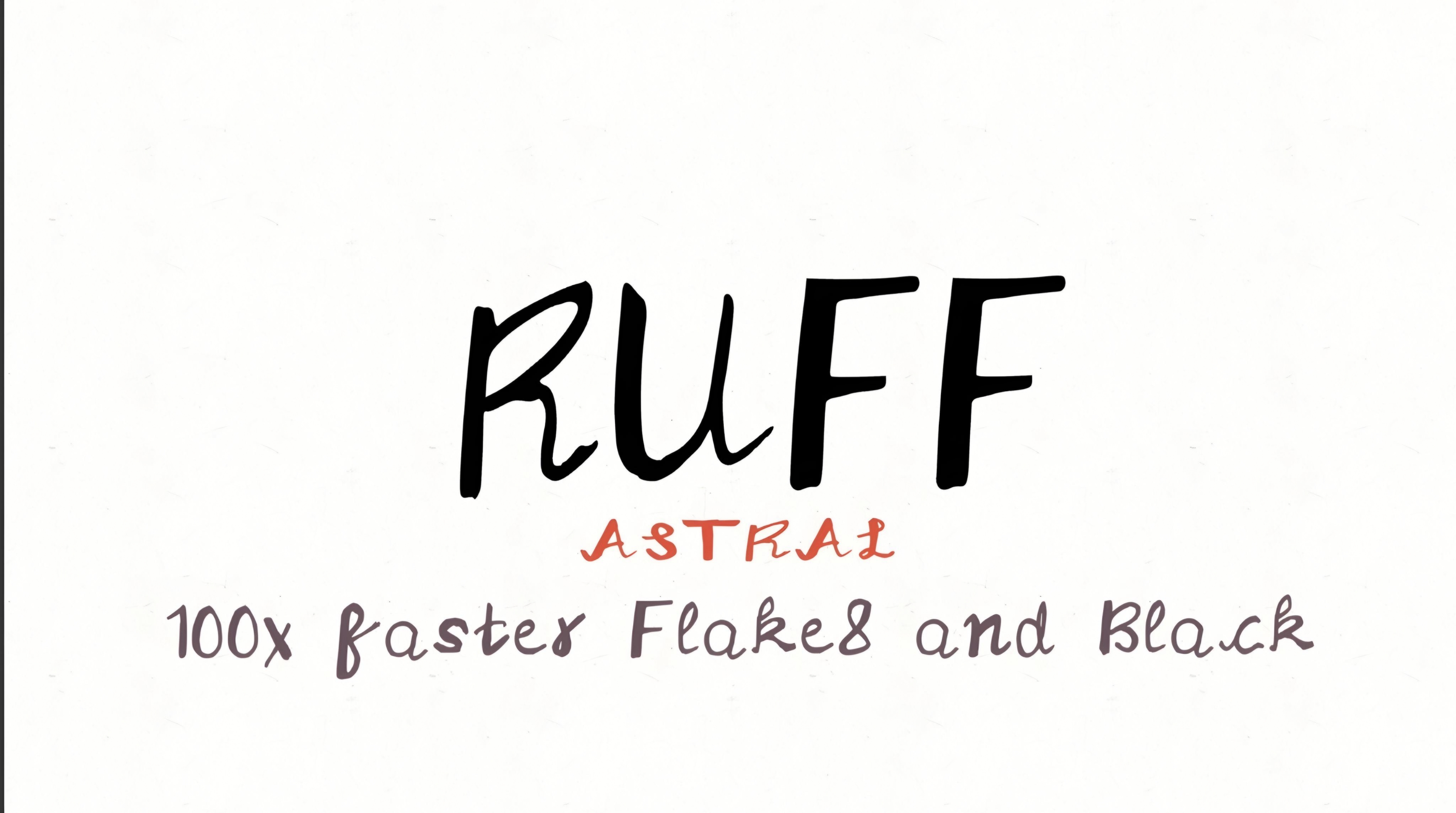🚀 Boost Your Code Quality with pre-commit & Ruff – The Ultimate Guide!
Why Use a Linter & Formatter?
Writing clean, consistent, and error-free code is crucial, but manually enforcing style rules is tedious. That’s where linters and formatters come in:
🔍 Linters (like Flake8, Pylint, Ruff) find errors, bad practices, and code smells before they cause issues.
🎨 Formatters (like Black, Ruff) automatically fix code style to keep everything consistent.
By using them, you:
✅ Catch bugs early before they break production
✅ Maintain a clean & readable codebase
✅ Ensure consistency across your team
✅ Save time by automating style enforcement
Tools We Will Use: pre-commit and Ruff
Using automated tools for code checking and formatting helps teams improve code quality and prevent common issues. In this section, we introduce pre-commit and Ruff.
Why Use pre-commit?
pre-commit is a local CI tool that runs before committing your code—acting as the first line of defense before GitHub Actions or other CI/CD pipelines.
✅ Catches issues early, before they reach the repo
✅ Runs faster than server-side CI (like GitHub Actions) since it works locally
✅ Ensures code quality before pushing
Why Use Ruff Instead of Other Linters & Formatters?
Ruff is a blazing-fast Python linter, formatter, and code analyzer, designed to replace tools like Flake8, Black, isort, pylint, and more. Here’s why it stands out:
🔥 Super Fast — Written in Rust, it’s 10–100x faster than traditional Python linters
📦 All-in-One — Combines linting, formatting, and import sorting in a single tool
🚀 Lightweight — Minimal dependencies, making it perfect for large projects
🛠 Highly Configurable — Supports fine-tuned rule selection and customization
How to Configure pre-commit & Ruff
1️⃣ Install Packages
1
pip install pre-commit ruff
2️⃣ Configure pre-commit
Create a file in your git repo called .pre-commit-config.yaml
1
2
3
4
5
6
7
repos:
- repo: https://github.com/astral-sh/ruff-pre-commit
rev: v0.3.4 # Use the latest version
hooks:
- id: ruff
args: [--fix] # Be careful, this argument will fix some of the problems
- id: ruff-format
3️⃣ Configuring ruff
Create a configuration file to define various rules for checking and formatting your code.
1
2
3
4
5
6
7
8
9
10
11
12
13
14
15
16
17
# pyproject.toml
[tool.ruff]
line-length = 88 # Sets the max line length (default is 88, same as Black)
target-version = "py312" # Specifies the Python version (py312 for Python 3.12)
extend-select = [
"E", # Style errors (PEP8)
"F", # Used variables and syntax errors
"I", # Import sorting
"B", # Common bugs
"C", # Complexity
"N", # Naming
"UP", # Python upgrades
"S", # Security
"RET", # Return statements
"D" # Docstrings (Ensures proper documentation)
]
exclude = ["/**/__init__.py"] # Files that you want to ignore
Additional options:
1
2
3
4
5
6
7
8
9
ignore = ["D100", "D104", "E501"]
[tool.ruff.per-file-ignores]
"tests/*" = ["S101"] # Ignore security warnings in test files
fixable = ["E", "F", "I", "B"] # You can also disable auto-fixing for specific rules
[tool.ruff.isort]
known-first-party = ["my_project"] # Treat "my_project" as first-party
combine-as-imports = true # Merge "import X as Y" statements
[tool.ruff.pydocstyle]
convention = "google" # Options: "google", "numpy", "pep257"
4️⃣ Install pre-commit Hooks
1
pre-commit install
5️⃣ Running pre-commit and Checking Code with Ruff 🔥🔥🔥
After installation and configuration, you can run pre-commit to check all project files. Running this command may produce an output similar to:
1
2
Check ruff..............................................................Passed
Check ruff-format......................................................Passed
If any errors exist, pre-commit will report them, and in some cases, Ruff will automatically fix the issues.
References
For more details, check out these resources:
